Erstellt am: 2. 7. 2011 - 12:34 Uhr
Travelling through South Sudan
By David Kriegleder
I have worked in several African Countries, but the moment I entered South Sudan I knew: This would be different. Driving through the seemingly endless Savanna landscape, I got the feeling I was inside a time machine: Small villages of naked Tribesmen, huts made out of wood and clay. People living the same way, as they have lived hundreds, perhaps thousands of years ago. Except for the automatic rifles of course - which are endemically scattered around the country. On the roadside I see a young girl, probably no older than 10 years. She's looking after her goats - an AK47 dangling from her shoulder. You say to yourself: "Boy, I hope she knows what she's doing with that". And then: "Boy, I hope I know what I'm doing here." Our driver increases the speed. He tells me, that this land belongs to the "Mundari" tribe and that we should try to get past it as fast as possible. It reminds me of Karl May's Winnetou books. 50 years of more or less uninterrupted civil war and total isolation have created a harsh and very archaic environment in Southern Sudan - a world, so medieval, I would have never imagined possible at the beginning of the 21st century. In South Sudan, you really felt like you're on a different planet.
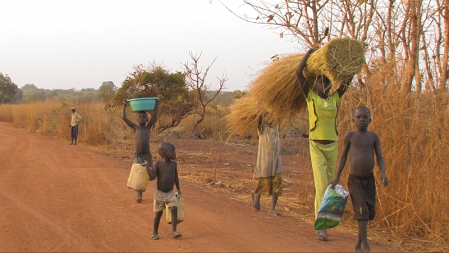
david kriegleder
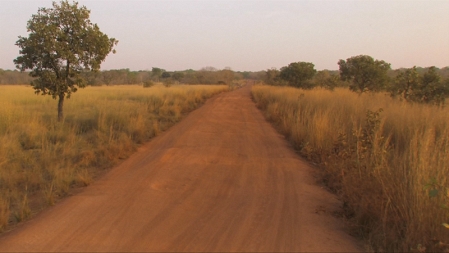
david kriegleder
Many places in South Sudan can't be reached by car, since the roads are just incredibly bad (and I mean "really bad", even for African Standards). Fortunately we are able to hitch a few rides with the propeller driven planes of the United Nations. Looking out of the airplane window, I realized just how vast and deserted this country is. Endless stretches of uninhabited land wherever you would look - a country bigger than France, but with only 60 kilometers of tarmac roads. Following the stream of the majestic White Nile River, we flew far north to the contested border area, landing in the town of Malakal. But it wasn't really a town, it was thousands of wooden shacks and tents, with refugees or "returnees" (as the government of the south likes to call them) from the north arriving by the minute.
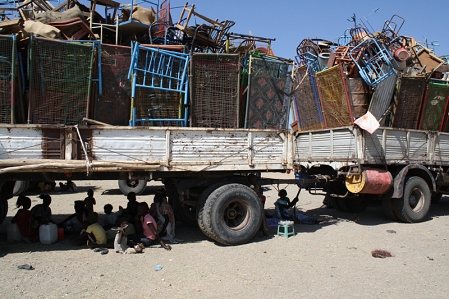
david kriegleder
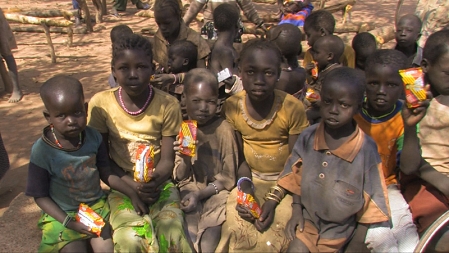
david kriegleder
Just a few days before, Malakal had been the scene of a violent shoot out between rival militias. In an air conditioned hotel (one of the few brick building in town) we meet the local information minister. He's drinking Coca-Cola, MTV is turned on in the background. The minister tells us, that the situation has calmed down now, and that things are peaceful again. "Just minor incidents", we should not worry about the recent violence. But somehow, the presence of his 8 heavily armed body guards, make me doubt that statement. Amidst the chaos of a temporary refugee camp, we meet quite a few extraordinary people who have dedicated their lives to this forsaken area. Priests, Aid-Workers, Physicians from Doctors without Borders - people working tirelessly to help the locals. It really makes you think, about life, death, and our in many ways pathetic "first world" problems. I don't think I've ever felt further away from home then here.
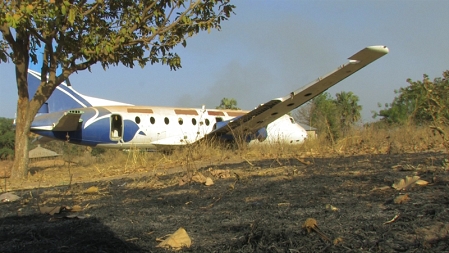
david kriegleder
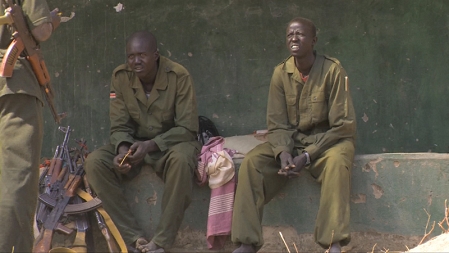
david kriegleder
But South Sudan is not only a place of poverty and misery. Quite to the contrary, hope jumps at you from every street corner. As the population prepares for independence, the streets of the country's capital city Juba, are filled with joy and celebration. Spontaneous rallies, people singing, laughing, crying - it is hard not to be emotionally touched by this collective euphoria. After 50 years of feeling oppressed and treated as 2nd class citizens, after decades of war und cruelties, people are anxiously awaiting independence and freedom. "Freedom" is a term used in such an inflationary way nowadays - in Southern Sudan you really get a sense, what it means.
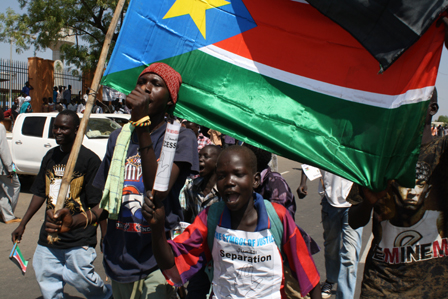
David Kriegleder
Fuelled by diesel engines and international NGOs, Juba is the hot spot of South Sudan. Its population has quadrupled to an estimated 1 Million in the last 6 years - what used to be a small and dusty accumulation of barracks and tents has turned into a proud and booming city in the middle of nowhere - a surreal and fata morgana like appearance. In the wake of becoming the world's newest capital city, Juba is already one of the world's most expensive places. Flooded by NGO money while importing literally everything from the neighboring countries, Juba's prices have hiked so dramatically over the last years, that the cost of a single tomato at the market is just as surreal as the town itself. While many international investors have been reluctant to invest in the region prior to its independence, a few "high risk" investors are already making good money in the capital's gold rush atmosphere. "Welcome to Juba - this going the next Dubai", a local businessman welcomes me warmhearted. He runs the town's only officially registered shipping and customs company, his cousin runs South Sudan's military intelligence service. He proudly offers me a glass of Johnny Walker Red Label and we drink to the future of South Sudan. "Things are finally looking good for us" he tells me. "You'll see, in a few weeks we'll even have Black Label here in Juba".
Dieses Element ist nicht mehr verfügbar

